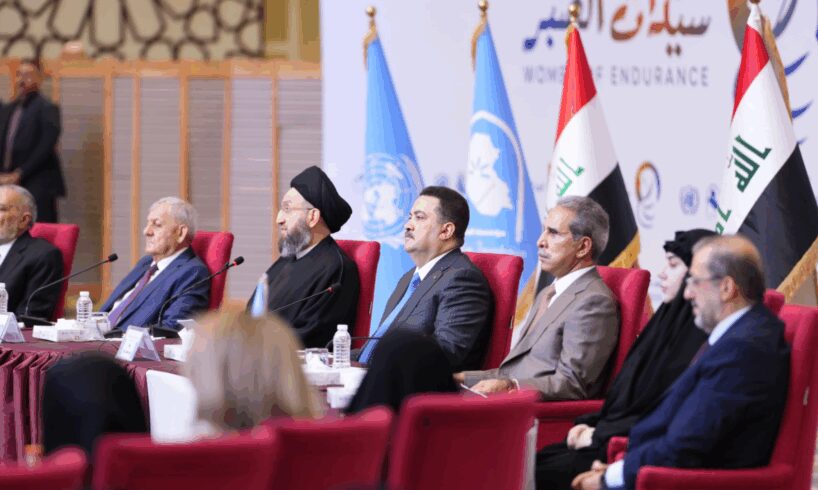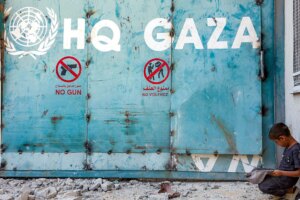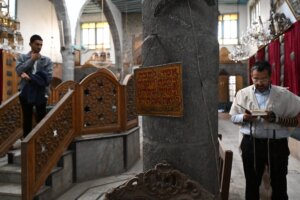
2025-07-26T09:38:55+00:00
font
Enable Reading Mode
A-
A
A+
Shafaq News – Baghdad
At the annual event marking the Islamic Day for Combating Violence Against Women, Iraq’s top leadership and the UN Mission issued a unified call for action to address violence against women, pledging legislative reforms, institutional support, and societal mobilization.
President Abdul Latif Rashid emphasized the growing threat gender-based violence poses to Iraqi society, blaming years of political instability, terrorism, and unchecked social media narratives for eroding the structure of Iraqi families. “Iraqi women have suffered marginalization under successive regimes,” he said, referencing coercive practices like forced marriage and legal disenfranchisement.
He highlighted the recent amendment to Iraq’s Personal Status Law (No. 188 of 1959), enacted in January 2025, which grants women the right to choose the religious legal code applied in marriage contracts.
Rashid urged the Sunni and Shiite religious endowments to expedite the release of comprehensive codes protecting women’s and children’s rights and called on parliament to pass the draft law establishing a national authority for women’s empowerment.
Prime Minister Mohammed Shia al-Sudani reaffirmed the government’s strategic response, citing broad reforms and targeted support. “More than 576,000 women are now covered under Iraq’s social protection system, including over 165,000 female-headed households,” he said, adding that more than 50,000 women in the private sector are enrolled in social security.
Al-Sudani detailed the launch of multiple national frameworks, including the National Strategy for Women (2023–2030), the updated National Strategy to Combat Violence Against Women and Girls, and Iraq’s third National Action Plan on Women, Peace, and Security (2025–2030). He also confirmed the expansion of government-run women’s shelters in four provinces, with more underway, and promised to present a formal report to the UN Human Rights Council in November.
Parliament Speaker Mahmoud al-Mashhadani focused on the trauma inflicted on Yazidi women during ISIS’s 2014 offensive. “What happened was not just a crime against them, it was a conspiracy against Iraq itself,” he said. “We failed to protect them, and we cannot forgive ourselves until those responsible seek their pardon.”
UN Secretary-General’s Representative in Iraq, Mohamed El Hassan, echoed calls for decisive action. “If the family is the foundation of society, then the woman is its strongest pillar,” he stated. He described ongoing patterns of violence and exclusion as “systemic” and widespread across Islamic societies, urging both Iraqi institutions and international partners to uphold women’s rights as a cornerstone of national stability.
Ammar al-Hakim, leader of the National Wisdom Movement (Al-Hikma), used the occasion to unveil a grassroots initiative, “My Family, My Nation,” encouraging Iraqi women to reclaim their roles as anchors of societal cohesion. “Whether homemakers or professionals, Iraqi women are the backbone of our identity,” al-Hakim said, urging women to find strength through family care, cultural values, and national responsibility.
The initiative aims to deliver training, psychological support, and educational outreach to help women balance domestic duties with public life, while promoting open dialogue on family unity and shared responsibilities between spouses.
Al-Hakim called on civil society, media, educational institutions, and the state to back the effort. “Together, we can build a nation rooted in compassion, wisdom, and shared strength—where the role of Iraqi women is not just preserved, but elevated,” he concluded.





